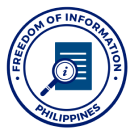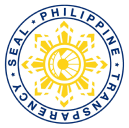Event Date: March 9, 2023, at 1:00 p.m.
Assalamualaikum.
[STANDARD GREETINGS AND ACKNOWLEDGMENT OF GUESTS]
Before anything else, let me take this opportunity to raise the urgent need for our law enforcement authorities to address, to solve, to put an end to the alarming string of violence perpetrated against elected officials.
This spate of violence leaves not only a trail of death but also establishes a chilling climate of fear among the people.
Worse, given the experiences of people elected into office, these acts of violence could potentially spawn more bloodbaths if perpetrators and those who masterminded them are not brought to justice.
It is not enough that we condemn these attacks.
The time calls for prosecution. For the attackers, the killers, and the masterminds to be jailed.
May I respectfully and humbly join calls for our law enforcement authorities and other concerned government agencies to exhaust their resources, exert their best efforts, and ensure that no acts of violence will happen again to elected officials, their families, their supporters, and their allies.
Dapat po na may managot. Dapat may makulong. Dapat mahinto itong mga ganitong patayan.
On that note, I am pleased to join a gathering that seeks ways to safeguard the integrity of our election process in the digital age.
This year, as we approach the Barangay and Sangguniang Kabataan Elections, we are called to demonstrate our commitment to a clean, honest, and meaningful election by improving efficiency and ensuring public confidence in the various stages of the entire electoral process.
The presence of every esteemed speaker and stakeholder across different levels of governance in today’s National Election Summit demonstrates our dedication to upholding the Filipinos’ right to vote and harnessing the critical role of technology in promoting responsible voting.
Imbued with the spirit of solidarity, we have another opportunity to strengthen the foundation of democracy and sustain our citizen’s trust in the elections.
I’m a very young politician. I’ve had five elections in my lifetime. But I always say to my volunteers and supporters na kapag nagsisimula kaming mag strategic plan during my run — huwag mandaya. Kasi there is no honor in cheating and nakakahiya na nagiging mayor ka pero nakukuha mo ‘yun sa pandaraya. Nakakahiya humarap sa mga tao, magalit sa mga tao kapag mayroon silang ginagawang mali or implement the law, and yet, ikaw mismo nakuha mo ‘yung position mo because of pandaraya. There’s nothing honorable about it.
May today’s multi-sectorial dialogue enable the formulation of up-to-date reforms and best practices that will fill in electoral gaps and secure the conduct of efficient voting, counting, and canvassing of our people’s votes.
I trust that the sanctity of the electoral process will serve as our guidepost as we prepare to ensure transparency and accuracy in our electoral exercise.
I welcome the integration of voter’s education in our K-12 program to help prepare and equip our Filipino youth with the ability to discern and engage responsibly in this democratic process.
By instituting civic education in youth- and nation-building, we encourage the involvement of an empowered citizenry guided by Filipino values, discernment, and knowledge that are crucial in cultivating a culture of participative democracy.
Let us bear in mind that as our Filipino youth cast their vote to elect their immediate community’s leaders, their experience will influence their future political participation and civic engagement.
Let us also prioritize avenues for improved technical and legal assistance education among public school teachers as members of the electoral board and as vanguards of the electoral process.
I’m sure you’ve heard when I was speaking before the league of municipal mayors, the league of municipalities in the Philippines, I already requested and reminded the politicians not to use the teachers to make them win the elections.
Pinaalala ko sa kanila na hindi naman ‘yung teachers ng Department of Education ang makakapagpanalo sa inyo sa election — ‘yung mga ginawa niyo that changed the lives, that implemented a transformative change in your communities — ‘yun yung mga makakapagpanalo sa inyo.
Our teachers spend long and tedious hours in polling precincts, often braving threats to their lives and safety. We owe it to them to ensure the safe and credible conduct of vote canvassing.
Kanina, I was asking the chairman habang naglalakad kami, “Sino ang participants natin sa summit?” Sabi niya, lahat daw ng stakeholders. Naging masaya ako dahil I am a stakeholder, I am a voter, and I can speak in this summit.
Baka naman, sa amin lang from the Department of Education, mauna ‘yung bayad sa mga teachers namin bago ang election. Of course, bumabyahe sila, kumakain sila, and may gastusin din sila during the days na the days na thet are serving the country. Baka lang i-advance, or it can be a consideration, or plan for future elections na mauna ‘yung payments or ‘yung compensation para sa ating mga teachers.
At isa pa nga ito sa mga challenges sa ating mga pulis. Ang masiguro ang seguridad ng mga guro na magsisilbi sa panahon ng halalan.
Minsan, ang mga guro ay tinatakot ng mga mga warlord politicians at ginagawang kasangkapan sa kanilang pandaraya.
Nangyayari ito kadalasan sa mga liblib na lugar at mga lugar na kilalang kontrolado ng mga private armies ng mga pulitiko.
Alam natin na mahirap kalaban ang mga warlords na may private army.
Pero kailangan nating ipakita na mas mahirap pong kalaban ang mga taong gobyerno katulad ng mga pulis at mga sundalo because they represent the government.
Ang mga requests na ito ay naka-address din sa Commission on Elections.
In years past, traditional elections, both at the local and national levels, have been tainted with issues on security and safety and raised salient concerns on campaign ethics.
During this time of our history, we can benefit from the advantages of digital transformation and secure the gains of increased voter turnout and a deeper appreciation of our people’s right to suffrage.
I am optimistic that the reforms you make today will positively impact the course of electioneering by ensuring opportunities for empowerment and accountability.
By working together in this undertaking, we can transform our electoral process, promote fair, honest, and safe elections. And above all, pave the way for a well-informed voting public who will elect the rightful leaders of our communities and our nation.
Alam niyo, kapag nag school visit ako for the Department of Education, natatanong ko sa mga teachers who serve with the board kung ano ‘yung mga experiences nila sa election as the Department of Education prepares to assist the COMELEC in the coming elections in the coming years.
Isa ‘yun sa mga nabanggit ko, ‘yung hirap nila — parang mahirap pa para sa kanila na makuha ang kanilang compensation. But more than that is ‘yung mga actual na pangyayari on the ground. As an example, inuulit-ulit ko kanina, this is true in Mindanao. Kasi nakikita talaga namin, like I say, stakeholder din ako kasi I am a voter.
We actually automated the counting, pero manual parin ang pagboboto namin. So sa mga kapitbahay namin doon sa Mindanao, mayroong mga pangyayari na hindi naman talaga na bumoboto ‘yung mga tao dahil pag dating sa school ng mga balota, nakukuha na ‘yun ng mga private armies, and then they do the shadings. That is true in many provinces in Mindanao. So hindi parin lumalabas kung sino ‘yung pinipili ng mga tao doon sa kanilang mga lugar.
As you discuss improvements on electoral process and discuss reforms, maybe we can move to something better than shading the ballots or writing on the ballots. Because the technology and biometrics — fingerprints scanning, face scanning, eye scanning, you have all that in your phones. Fingerprint scanning, nakikita niyo na sa iba’t ibang gadgets, ginagamit natin araw-araw. These are things that can improve our process in the elections.
Doon sa amin sa Davao, mayroon kaming mga voters who vote in Davao City in the morning, and vote in Western Mindanao in the afternoon — either using the same name, or using a different name, because we don’t have a national database. We cannot see who are the voters, kahit na kapitbatbahay lang namin, Davao del Sur, hindi namin nakikita kung sino ‘yung bumoboto doon na bumoto rin pala sa isang barangay.
And that is true. When I was mayor, we have a Task Force Davao checkpoint in all the entrances of Davao City. And kapag mayroonh truck or buses na madaming tao, usually that is a red flag, and naiinform ang mayor. Nasasabihan ang mayor na mayroong pumasok, may isang truck na ganito karami ang tao and they are going to this place. Kapag mayroon ding lumalabas, nasasabihan din ang mayor. Well, I do not know if they are residents of both areas, Davao City and that other area doon sa kabilang side, and then they vote twice. Because sabi nila, “Doon kasi may bilihan. Pag dating mo doon, babayaran ka para bumoto. Dito kasi sa Davao wala kaming nakukuha kaya bumoto lang kami dito kasi kaibigan ka namin, pero pupunta kami doon kasi may pera doon na binibigay sa amin.”
That is the reality. That is my experience as city mayor. I am sure it is happening — that is anecdotal, but that is happening in many areas of our country.
I am truly happy that there is this summit that is led by the Commission on Election to discuss how we can improve this democratic process so that the will of the people is clear, and the choice of the people is the one who is declared the winner.
Kaya malaki rin ang pinagpapasalamat ng Department of Education sa COMELEC para sa discussion na ito dahil nagkaroon kami ng platform para masabi namin kung ano ‘yung mga experiences namin sa pagtulong and serving in the board. And we are very hopeful and optimistic for the commissioners and chairmans on the Commission on Election that there will be an election coming up this year, in the next two years, in the next three years, and the several years to come, na hindi na natin nakikita kung ano ‘yung mga problema na nakikita natin ngayon dahil nabigyan natin ng solusyon dahil mayroon tayong summit na ginagawa where we listen to our stakeholders and we sincely look for solutions to the problems.
Ang lahat po ng ginagawa natin – para sa Diyos, sa Bayan, at sa bawat pamilyang Pilipino.
Shukran.



